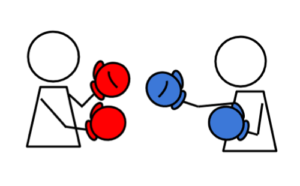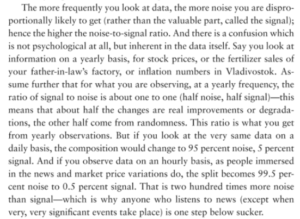Business & Money
In looking at my investment portfolio, I noticed that nearly all of my holdings are platform businesses with strong network effects.
I define a platform business as one that creates more value for the businesses built on top of it than the platform business captures itself. Take Amazon for example. If you add up the value of all of the businesses that sell their products via the Amazon marketplace and leverage their fulfillment services, that would be a much larger number than Amazon’s market cap.
Network effects occur when the value of the network increases as more participants join. Take Apple. As more people use iPhones, more developers are incentivized to build apps for iOS. As more apps are available in the app store, more users are incentivized to join the platform.
If you look at the most valuable public companies in the world by market cap, 7 of the top 10 are platform business with strong network effects (AAPL, GOOGL, MSFT, FB, AMZN, BABA, TCEHY). This might be the most powerful business model in existence.
The latest addition to my portfolio is Teladoc (TDOC). It is a telehealth company that provides on-demand medical services via mobile devices. If you think about many of your doctor’s appointments, there’s no reason that they couldn’t have happened via video chat from your iPhone. Right now, TDOC is a B2B2C (business-to-business-to-consumer) service in that they sell to companies, and the companies, in turn, offer the service to employees as part of a benefits package. But I see no reason they can’t enter the B2C channel directly.
And healthcare is perfect for a platform business with network effects. You have providers and patients that come together to form the perfect marketplace. With more providers, the service is better for patients and vice versa. And due to the regulatory environment, this could be a winner take all market where the first to scale takes the lion’s share of the profits leaving a long tail of companies to fight over the scraps.
Human Progress
In reading business and technology news these days, you’d be hard pressed to avoid pieces on artificial intelligence and automation. Still, it’s not every day that two tech luminaries way in on the subject and get into a twitter spat more common of Donald Trump or a couple of c-list celebrities.
When asked about Elon Musk’s warnings about the existential threat posed by AI, Mark Zuckerberg replied with “I have pretty strong opinions on this. I am optimistic. And I think people who are naysayers and try to drum up these doomsday scenarios — I just, I don’t understand it. It’s really negative and in some ways I actually think it is pretty irresponsible.”
Then Musk fired back with this gem.

As funny as this is, our time is probably better spent thinking about the real implications of AI. Without trying to guess about specific future scenarios, the general possibilities might look like the following:
1. AI is caught up in the hype cycle. We’ll continue to get better search results, more personalized Facebook feeds, and even robot radiologist that can read x-rays and CT scans better than a human. That said, to say AI poses an existential threat to human civilization is simply an exaggeration and overly pessimistic.
2. AI will be massively beneficial. Human productivity and industry will see incredible gains due to the automation of boring and repetitive work. Entire industries will be transformed as the rate and efficiency of production explodes. While these things are clearly positive, there will likely be large sections of the population that see unprecedented changes to their lifestyle and ability to make a living.
3. Take number 2 to the extreme. The AI explosion will lead to superintelligent machines and there will be no more jobs left for humans to do. Best case we become cyborgs completely integrated with technology. Worst case, we become paperclips.
Something akin to number 2 seems to be the most likely scenario. But however things end up, it will be important to ensure that the gains of this technology are appropriately distributed across society and that negative externalities are minimized. We’ll need to ensure that all groups (political, racial, economic, etc) are at the table and engaged in thoughtful conversation.
Philosophy
In quantum mechanics (the study of the motion and interaction of subatomic particles), you are never sure of a particle’s specific location. Instead, you can only calculate the probability of the particle’s position at a given time.
I find this idea to be extremely elegant and one that should be applied to other areas and not just this specific domain.
Much of life seems to exist in polarities. It’s hard for some people to conceptualize being transgendered because they have only ever understood male and female. People identify as democrat or republican. A statement is either true or false.
If the very foundation of matter and reality is imprecise, we as human beings would be well served to understand that idea and think in those terms more broadly.
My Latest Discovery
A friend recently told me about the Duo travel pillow. If you travel a lot for business or pleasure, this is a must add to your travel accessories.















